As part of the Alumni Association's centenary celebration, four alumni were invited to share their vision of the next 100 years during a TED-style talk at Alumni Weekend 2015. About 230 people came out to listen to these speakers share their vision for the coming century - but we weren't satisfied with just listening; we wanted to dig deeper. So New Trail nabbed these four futurists for a conversation that ranged from climate change and eternal life to Star Trek and Independence Day. Turns out, they predict that people will be just as important in shaping the future as technology. What follows is an abbreviated version of our conversation.
Lisa Cook: Thanks for sitting down with us today. I'd like to start with a question that, Kuen, as a self-professed Star Trek fan, you might appreciate. I've always gravitated toward the hopeful vision of the future in the Star Trek series. I mean, the show's premise is basically that our most important goal is to go forth, explore and discover. So I put the question to all of you: do you have a hopeful vision for the future?
Kris Wells: I think I have a hopeful vision of the future, where perhaps we're not fighting wars based on religion, where we are united as a species. Rather than seeing differences as something to be attacked, they are embraced and celebrated. Where we're not a world full of competition, but co-operation.
Shawna Pandya: Yeah, you know, it's funny because I don't think you can escape either hope or competition. When I think of the future, I think technology is going to continue to increase exponentially, but humans won't - and you can't change human nature, especially not within the course of 100 years. So definitely there will be strife and competition and unrest and wars, but I think there will be a lot of good stuff in the future, too.
Kuen Tang: I'm very hopeful for the future. I think we're going to evolve. We're going to open our hearts and we're going to have a certain understanding and empathy toward everybody around us. And therefore our differences won't really make any difference. We need to have hope now in order to have hope in the future.
Curtis Gillespie: I love that … "differences won't make a difference." Did you just come up with that now?
Tang: Yes!
Gillespie: That was really good! I like that. To me the jury's still out on what the future will bring. I mean, I'm hopeful, personally, because I'm an optimistic person, but when I think about the issues and problems we have, they're really, really big. I'm cautiously optimistic.
Wells: I think, for me, the future is the one we want to build, right? We have to have intentionality. The future's just not something that we want to let happen to us.
Pandya: What do you think is going to be the turning point or the catalyst for that to happen?
Wells: Some would say it's a catastrophe - something that happens that forces a rebalance. And either we do it ourselves or something will happen that forces us to adapt. I'd rather be ready to adapt than have to be responding to something else. Right? Sort of the dinosaur/meteor scenario. [laughter] We don't want to have to have a cataclysmic event where it's survival of the strongest, and the fittest are the ones who can be the most adaptable that survive and continue this world.
Tang: What we need is an alien invasion now. [laughter]
Pandya: I watched Independence Day, you know. That was a good catalyst.
Tang: It brought people together …
Wells: With patriotism.
Tang: Yeah, exactly!
Wells: And American …
Gillespie: … jingosim!
Wells: … supremacy. Yeah, and I think that's the difference. We've got to break down the barriers rather than continue building them up.
Gillespie: But even if there is something cataclysmic. Say … 10 years from now, 20 years from now, we come up with a new fuel source and scientists miraculously come up with a way to soak the carbon out of the atmosphere, and then there's no environmental problem. Does that mean everything is going to be OK? We're still going to be people.
Wells: We have human problems.
Pandya: Humans are drama queens. If there's no problem, they will make problems.
Tang: Exactly.
Gillespie: But then what does that mean for 100 years from now? So if it's not the environment, if it's not alien invasion, if it's not some disease, some virus … or even if it is, we're still us. I don't know if there's going to be … that one moment that's going to say, "Hey, we've got that solved." Maybe. I hope so.
LC: So then are humans barriers to progress? Or are they the catalysts?
Gillespie: We're the barriers and the progress.
Tang: I think human potential is limitless. But we put that barrier on ourselves on how much and how far we're willing to go. [looks around at the others with a grin] I'm not using myself as an example, because I'm so great. [laughs]
Gillespie: Limitless. Just limitless.
Tang: Exactly. When I lost everything, when I lost my independence, when I stopped walking, when I couldn't go to places … that's when I realized that I need to work hard to achieve the basics that everybody else has, but as soon as I achieved the basics then I realized that I could do more. I took that limitation off myself. [Editor's note: Tang became a quadriplegic after a 2001 car accident.]
Pandya: I think it's way too early to call humans barriers, because we're just now realizing the power of empowerment, the power of platforms. There are still one billion people who are living in abject poverty and we're still trying to bring them online, give them the Internet, give them smartphones and see what they can do as scientists, as entrepreneurs, as discoverers. And I think it's way too early to just write ourselves off as barriers when we still have so much untapped potential and so many minds that have been waiting to be brought online. So, I firmly believe that we should be arguing and fighting for ourselves as catalysts for progress.
Gillespie: Yeah, but untapped potential doesn't do anybody any good unless you tap it.
Pandya: Exactly. And that's what we're fighting for.
Gillespie: And how do you tap it? That's our challenge.
Pandya: By empowering people: by giving them smartphones, by giving them Internet, by giving them access to massive open online courses, even if they're in the middle of Nepal or Mongolia.
Gillespie: Right. Right.
Tang: But I think it's both. I think you have to recognize there's a barrier first, in order to move forward.
Wells: Yeah, it's taking that responsibility for being an agent of change. We can't wait for other people to liberate us. I always say that when a system in nature reaches sameness it dies and collapses because it can no longer adapt. It's lost its diversity, its resiliency. So the future of us is going to depend on the diversity of our people, the diversity of our ideas, as well. That's where the real hope for me is.
Pandya: In 2115, I hope that humanity is in a place that's so far advanced from where we are now that we're asking ourselves, "What took us so long to get here?" That's my hope for the future.
Gillespie: But where? What is "here?"
Pandya: Here? A place where we're constantly achieving for the better, we're competing against ourselves to better and ensure the longevity of our race. And who knows, it might be by that time that we've established that there is intelligent life elsewhere in the universe and it will be up to us to uplift those races and help them go through their own problems. Who knows?
Gillespie: That'll be the U of A's motto 100 years from now.
Pandya: Uplifting the whole universe! [laughter]
Wells: That's ambitious!
Gillespie: Well, you know. You've gotta dream big at the U of A, right?
Cook: Kuen, I'm going to throw this one at you. Who has the better ability to visualize the future: pop culture or science?
Tang: I think it has to be a mixture of both. If you're dominated from only the scientific side, then you lose the heart, and you lose a lot of ourselves and humanity. But if you're only concentrating on pop culture, what people want, then you miss the scientific advancement.
Gillespie: It would be a really interesting question to ask: how those two are going to intersect in the future. Is science going to become more self-aware about its ramifications? Is pop culture going to take on new technologies? Personally, I would say pop culture. I mean, the thinkers - the soft thinkers - are always going to have a wider perspective.
Wells: I think the keepers of the future are artists. They're the ones who have always had our conscience and consciousness, who tell the stories and the cautions of technology but also remind us of our past - going back to Shakespeare, the drawings on caves, as a way to preserve those messages or those warnings. Or the stories and the dreams.
Tang: I think you need to be able to dream it, then build it. But you have to have the skills and technology to build it in order to fulfil the dream.
Pandya: Einstein has this great quote, "Imagination is more important than knowledge." I don't think imagination is the property of only science or of only pop culture. When you look at the best artists out there, they've taken their craft down to a science before they can add that level of extraction or human creativity. And on the flip side, when you look at the scientists who have dedicated their lives to a single gene or genome, they do the legwork, they learn about the nitty-gritty details, but then they add that spark of creativity or imagination. That's where innovations come from.
Tang: [Tang pats Pandya on the shoulder] I like you. [looking at the others] I like you guys, too.
Gillespie: [grinning] You guys want to meet back here in 100 years?
Wells: [laughs] No, I don't want to be back in 100 years. My time will be over and it's time for the next to come in.
Pandya: So there's a good question: If human longevity becomes a thing, if we reverse aging, would you take that offer up? [turns to Wells] Sounds like you wouldn't.
Wells: No, I believe more in the soul as being transcendental rather than the body. So we may come back somewhere on this planet or somewhere else in this universe to learn those lessons we need to know, so you can transcend into something else.
Gillespie: He may not be the person you want to model your life on, but Woody Allen said it would be terrible to have eternal life. You'd never get anything done because you'd always have tomorrow. So, no, I don't want to reverse the aging process. I like having the pressure of knowing there's decreasing time left.
Tang: I think pressure makes us get things done now instead of waiting for tomorrow.
Pandya: Well, selfishly, I'm just so curious about what the future holds, I want to see what the world is like in 2115. The caveat being: do we have the resources to accommodate that? Because I don't want to be there if it prevents someone else from being born. The other thing is, technology changes exponentially but humans are generational, so our ability to adopt new technology is totally different from somebody even four years younger. Would I be able to adapt to the world as quickly as the new generation? So, selfishly, of course I'm so curious to see what the world is like in a century. Does it make sense? Maybe not.
Tang: I don't. I only have 32 years to go, so I'm good. … Like you said, by the time you get there, do you even want to be there? I'm tired right now! I'd like to rest!
Gillespie: They'd better increase the strength of Advil if I'm going to be around to 2115.
Wells: The converse is that question they ask at parties: would you want to know the date of your death? I'm like, no! I go every day knowing that tomorrow, circumstance could change.
Gillespie: I have a question for you guys. Are you optimists?
Pandya: So far.
Tang: I think you have to be in order to live day to day happily.
Wells: For me, it's why I'm at the university. It's about what can we do to build a better world, open minds or to help the public understand the issues before us. I always say universities are society's conscience and we need that freedom to ask those really difficult questions of our policy-makers, our politicians and of ourselves. I hope we don't lose that role in whatever shape a university will take in the future. It might not look like the bricks and the mortar we have around us - I think our relationship to knowledge will fundamentally change - but I think about how we're able to discern what is good knowledge when there's so much information out there. That will be one of the real tools of the future.












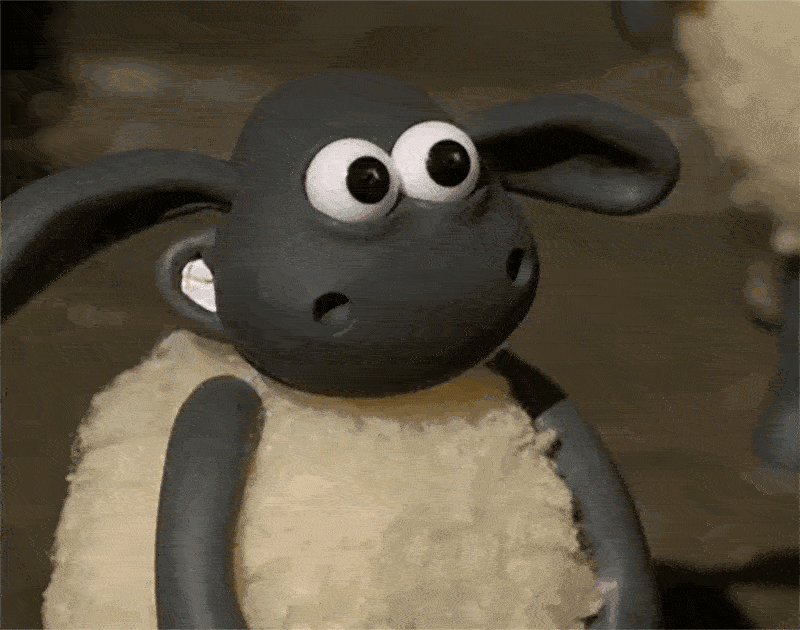
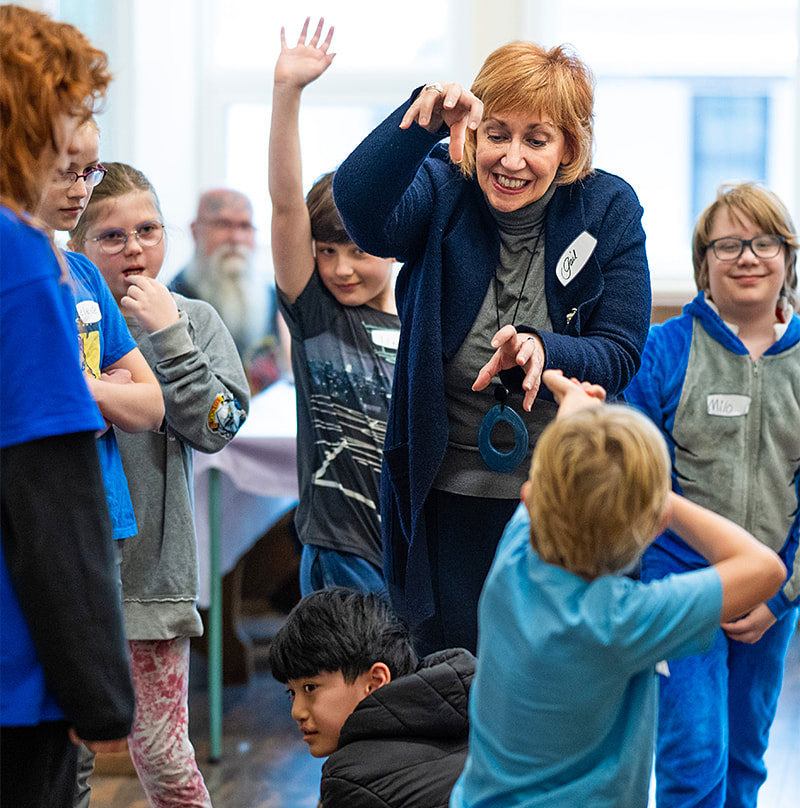


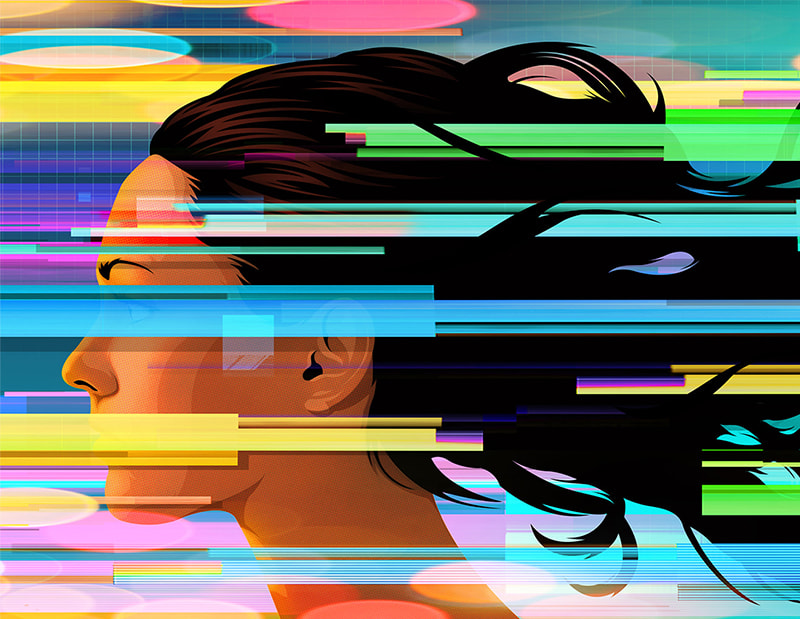




















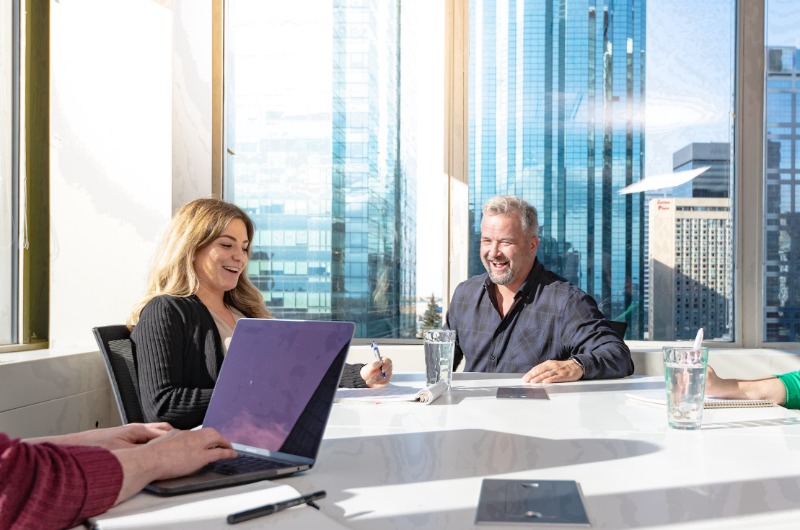
























































































































































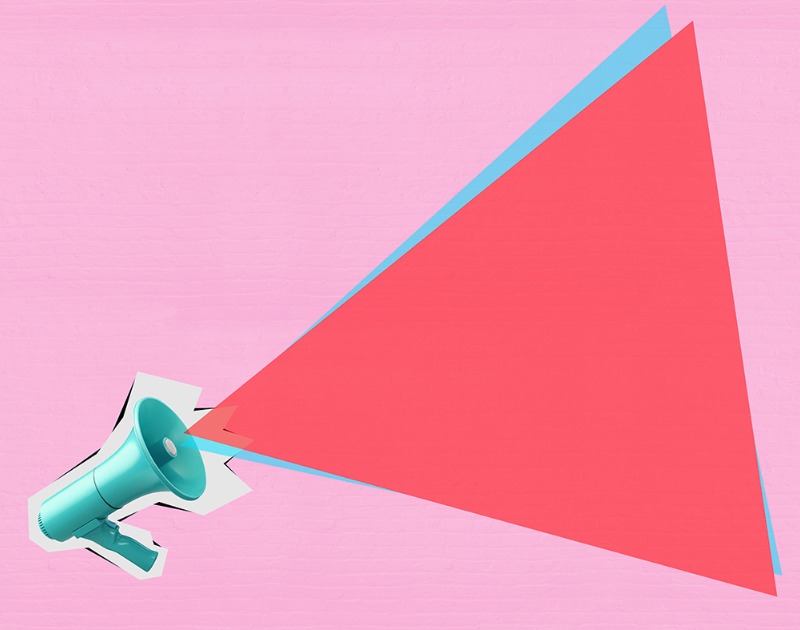





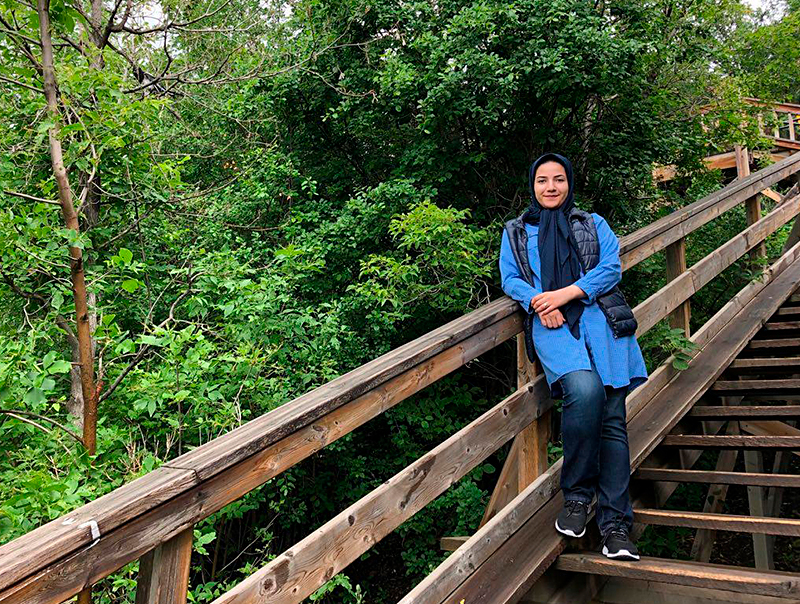




















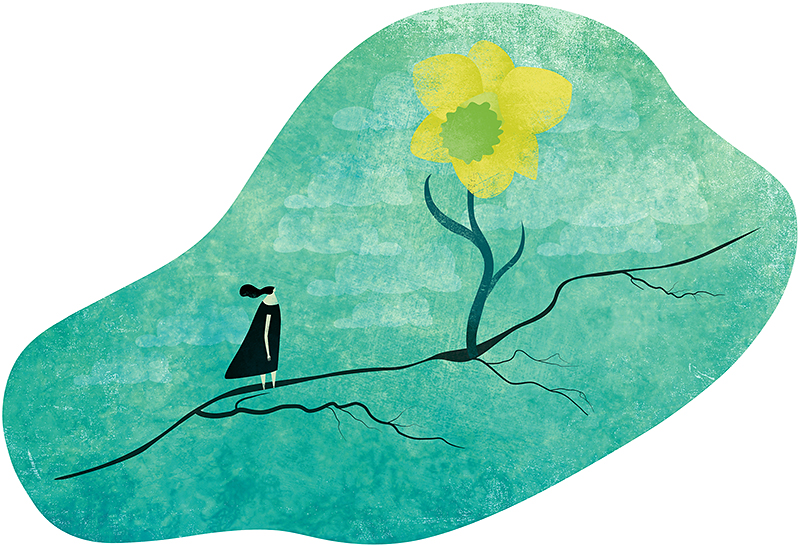






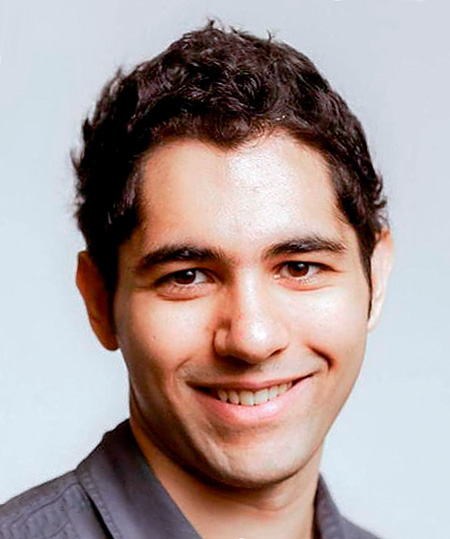














































































































































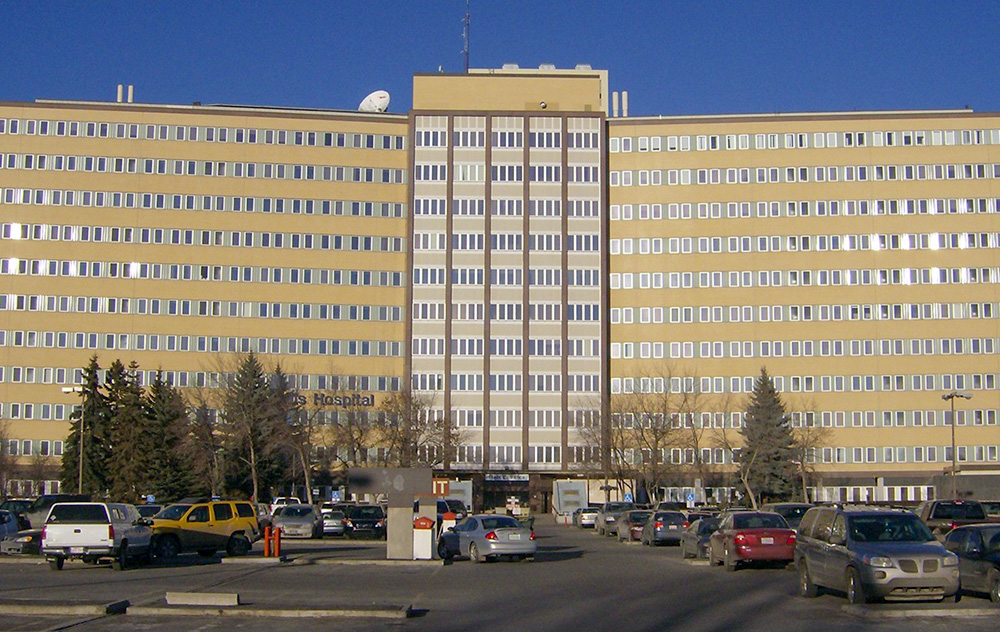





































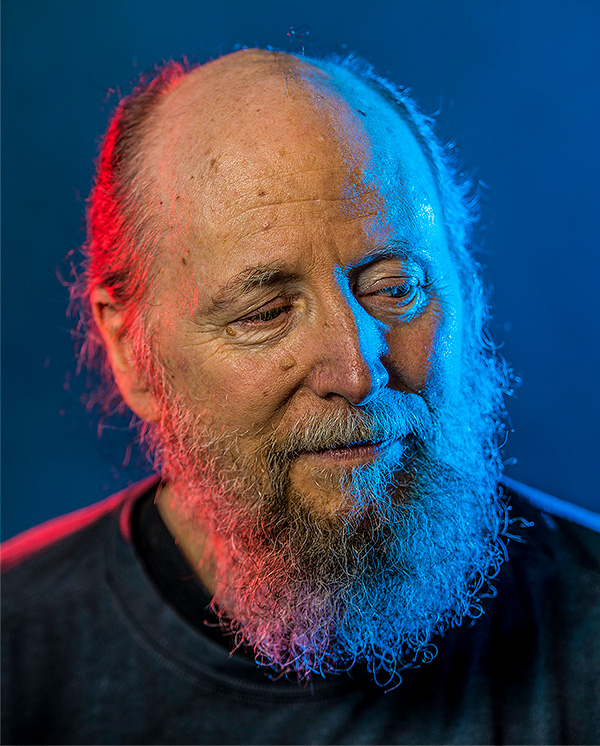












































We at New Trail welcome your comments. Robust debate and criticism are encouraged, provided it is respectful. We reserve the right to reject comments, images or links that attack ethnicity, nationality, religion, gender or sexual orientation; that include offensive language, threats, spam; are fraudulent or defamatory; infringe on copyright or trademarks; and that just generally aren’t very nice. Discussion is monitored and violation of these guidelines will result in comments being disabled.